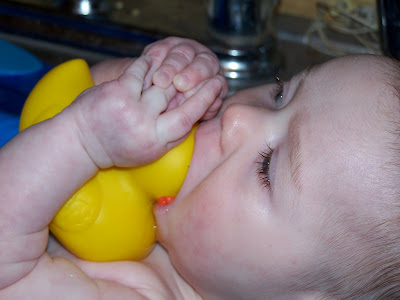I've been thinking about self-righteousness for a while now, and quite a few people have described it as or used terms like:
"you think you're better than everyone else"
"being judgmental"
"proselytize"
"knowing what's best for everyone"
One person went so far as to say, "the concept of 'self-righteousness' is hopelessly, deeply, necessarily relative to each person's system of values"
Those were the direction of definition and connotation that I had given to the word "self-righteous" for quite a while, but while exploring the idea of self-righteousness, how it applied to me and how to effect change in myself, I was stunned by how incorrectly I interpreted the word.
I think I interpreted it incorrectly and refused to explore its real meaning because I wanted to hold onto the comeback of "No, I'm not! Look, I'm not judging you." I wanted to hold onto the idea that I wasn't self-righteous or that it was easy to change how self-righteous I was overnight--"Well, I might have been self-righteous yesterday, but I won't be tomorrow. I'll stop judging people. I won't proselytize. Etc."
The definition of self-righteous has little (nothing really, except connotatively or as a logical conclusion) to do with how one externally acts; nor does it have a meaning that changes depending upon what one's values are.
To settle on what self-righteous meant, I decided to settle on what psychologists explore when they are studying self-righteousness... and it's pretty clearly just a "confidence in the correctness of one's own morality or good character."
SELF-RIGHTEOUS: "Confidence in the correctness of one's own morality or good character"
One interesting thing that has recently been discovered (as reported in last month's issue of Journal of Applied Psychology) is
how one's self-righteousness effects one's choices in ambiguously moral scenarios.
Once one agrees that confidence in one's morality is the only definition needed, then people can honestly assess their own self-righteousness (especially if you ask the question without using such a loaded word as self-righteous). Give people a scale of values to answer the question "Do you consider yourself to be a moral person?" and all the people at the high end of the scale are the ones most confident in their own morality.
What the study found was that those people who had high confidence in their own morality... well, let me quote...
Scott Reynolds and Tara Ceranic of the University of Washington said their research highlights the idea that people with exceptionally strong convictions about their moral goodness are likely to follow extreme courses of action because they can convince themselves that whatever they do is good. When the right course of action is ambiguous, they added in a paper published in the November issue of the Journal of Applied Psychology, such people are likely to gravitate to opposite ends of a range of behaviors. When there is wide social consensus that something is wrong, they tend to conform to social norms.
When the researchers tested their hypothesis on managers who were asked to make a judgment call involving a conscientious employee who needed to go home early one day, they found that the managers who believed most strongly that they were good people came to extreme conclusions: They either let the employee off for the rest of the day with full pay, or insisted the employee stay and work full hours. The managers who did not think they were particularly good people tended to reach moderate conclusions: They had the employee finish some work and then leave early.
In my exploration of the concept of righteousness (usually seen as a positive) and self-righteousness (usually seen as a negative), it was referenced in a lot of religious contexts (I know, what a surprise). One of my favorite definitions of self-righteousness, though, was from that context, and it was simply, "Self-righteousness is defining our rightness by what we do not do. That's self-righteousness. When you measure your rightness by what you don't do, your rightness is coming at the expense of someone else."









